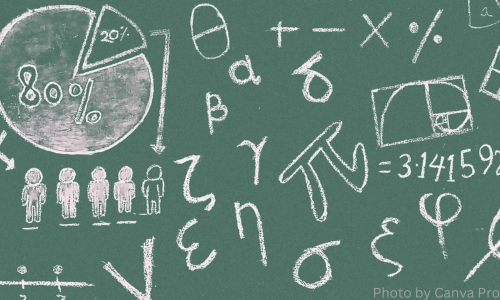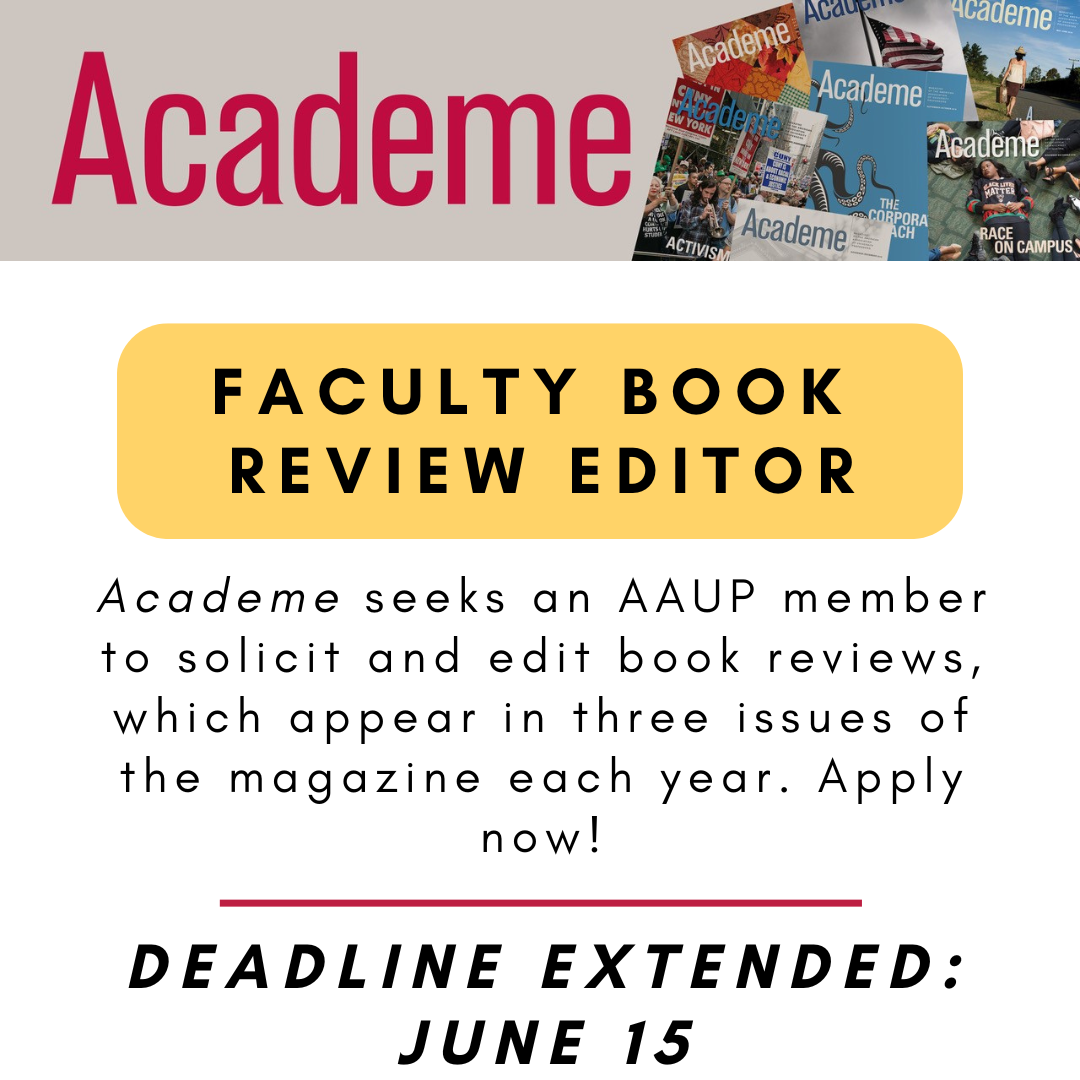- About
- Programs
- Issues
- Academic Freedom
- Political Attacks on Higher Education
- Resources on Collective Bargaining
- Shared Governance
- Campus Protests
- Faculty Compensation
- Racial Justice
- Diversity in Higher Ed
- Financial Crisis
- Privatization and OPMs
- Contingent Faculty Positions
- Tenure
- Workplace Issues
- Gender and Sexuality in Higher Ed
- Targeted Harassment
- Intellectual Property & Copyright
- Civility
- The Family and Medical Leave Act
- Pregnancy in the Academy
- Publications
- Data
- News
- Membership
- Chapters
The Silencing of Research
DEI and targeted harassment.

A dangerous movement is growing in the United States. Previously, I would have described it as a movement to suppress research, but it has now escalated into a violent drive to suppress researchers who study equity—and I am one of them.
The movement has a playbook that starts with sending accusations against faculty who focus on diversity, equity, and inclusion (DEI) to a far-right newspaper. The next stage is to amplify the accusations on social media—in my case they were shared by Elon Musk and Ted Cruz—and then finally to send the accusations to the institution, after the faculty member has been hanged, drawn, and quartered by the court of X. The movement was successful in forcing Claudine Gay’s resignation at Harvard, and it has now moved to faculty focused on DEI at Harvard, to me at Stanford, and to others elsewhere. Most of the accusations are leveled against faculty who are Black (I am not), all of the affected individuals focus on equity, and all of us are women.
My work was first targeted when I moved from England to California in 1999 to become a professor at Stanford. I had completed an award-winning study in England that showed that students who were taught through problem-solving and reasoning, not memorization of methods, achieved at higher levels, eliminating gender inequities. In 2008, when Megan Staples and I published evidence from a four-year National Science Foundation study that showed this method produced higher mathematics achievement and more equitable outcomes in US schools, a group of white, male professors of mathematics accused me of scientific misconduct. Unbeknownst to me at the time, my move from England had placed me at the center of the “math wars,” a raging battle in which the defenders of traditional teaching methods go to extreme lengths to hold onto a model of teaching that has endured for centuries, despite showing little proven success.
Stanford was forced to investigate and reviewed all my data. The university concluded that there was no evidence of misconduct and closed the investigation. Three of the accusers then shared their accusations online. This started a stream of harassment, abuse, and slander that was so egregious that I moved back to the United Kingdom and accepted a new position, an endowed chair at the Marie Curie Foundation. Unfortunately, the men who worked to discredit my results continued to share their inaccurate claims. Three years later I decided to return to Stanford and fight to end their campaign of defamation.
I was reappointed at Stanford and had the support of Claude Steele, an incredible scholar and my dean. He and I created a webpage detailing the men’s behavior and shared it on Twitter. It was 2010 and this was the first tweet I ever posted. That weekend, the webpage and tweet went viral and I was contacted by national newspapers. Over the next few weeks, I received hundreds of letters from women scientists detailing their own stories of academic bullying by men in science and math departments. Reading those letters was a sharp reminder that we have not achieved parity in the academy. Even when more women are hired, the conditions in which many are working threaten their productivity and often result in a hostile workplace climate.
The suppression of women’s ideas and the constructions of myths about women’s academic inferiority are not new. In the 1800s, when girls were found to be quicker and more advanced than boys of the same age, it was explained that boys were thoughtful and deep and that “gold sparkles less than tinsel.” These ideas seem ridiculous to us now, but present-day discriminatory tactics are equally reprehensible. A 2023 study by Katie Spoon and colleagues of a quarter of a million faculty in the United States showed that women were more likely to leave their faculty jobs and less likely to be promoted than men at every career stage, with workplace climate playing a major role.
Over the next few years, I moved past the defamation and created many resources to help share research on ways to teach and learn math well. These included a website that is now accessed by half a million educators each month and a free online class for students, taken by over one million people, as well as numerous books and research articles. I was able to work again without harassment, and the bullying behavior of the mathematicians who had targeted me seemed to be over.
The calm lasted until 2019, when I was asked to be one of five writers for a new mathematics pedagogical framework for the state of California. The nonstatutory framework, with ideas for improvements, shared the research of the previous two decades showing a better way to teach and learn mathematics, consistent with the approach of more successful countries. It did not take long for the same men, now joined by a handful of others, to form a group opposed to the ideas and again target my work. Claims that my research was not credible started to circulate once more.
It was a quiet Friday night in 2021 when my Stanford email inbox began filling up with death threats. I soon discovered that Tucker Carlson had shared my photograph on his Fox News show along with the claim that I was “infusing social justice into math.” That was the beginning of a tumultuous few years, when I was positioned as the person driving all the California recommendations. The ideas actually came from a committee of twenty appointed people and five writers. I was torn apart on social media and in the press.
In addition to the public attacks, the group opposed to changes in math pedagogy petitioned journals to retract my scientific papers, posted misinformation on my Wikipedia page, tried to stop my center’s grant funding, and contacted conference organizers and grant funders to urge them to block my research presentations and deny my requests for funding. These acts all pointed toward knowledge suppression.
Now the California framework has passed and schools are moving to more effective mathematics teaching methods, but the harassment has not stopped. The latest volley has involved an anonymous complaint of research misconduct that was sent first to the right-wing news site the Washington Free Beacon, then shared widely on social media—amplified again by Elon Musk and Ted Cruz—and finally sent to Stanford. The anonymous accusations were presented in a one-hundred-page document that included fifty-two accusations of research misuse. In truth, only fifteen studies were mentioned in the complaint, and seven of them were about the timed testing of math facts. Most of the examples in the complaint came from the California Mathematics Framework. Over half of the arguments in the accusers’ document were repeated verbatim—literally copied and pasted, many of them three times—to extend the length. Stanford has now dismissed the claims and will not be conducting an investigation into misconduct.
I often wonder what is so threatening about my research. I have shown that some teachers were able to work effectively and bring about higher and more equitable outcomes through their mathematics approaches. Of course, questions remain about whether other schools could work in the same way, and raising such questions is important. But asking questions, having collegial discussions, and even engaging in heated scholarly debates are very different from undertaking a public campaign to discredit a researcher through false claims of misconduct. Questions, discussions, and debates are all important for the advancement of knowledge. Politicized attacks on the reputations, livelihoods, and safety of researchers, however, undermine the process of knowledge production and ultimately the entire project of higher education. This damage does not come from a desire to seek truth; it is the point and goal of right-wing attacks on DEI research and researchers.
I have come to the conclusion that I pose a threat to some people because I have produced data showing that some inequities can be countered with a different approach to mathematics, and that mathematics plays a significant role in maintaining our social order. Approaches to mathematics that disrupt inequities in race, class, and gender are not welcomed by all.
I am not the only academic who has been targeted for their research. Those researching the climate, racial inequities, gender oppression, and other contested topics are also experiencing repressive threats, often in the form of stories and posts in the right-wing media or social media. Attempts to suppress the progress of scholarly knowledge, such as those aimed at me, often happen under the radar, but they chip away at researchers’ reputations and safety, causing harm to the researcher and to the scientific enterprise more broadly.
Politically motivated attempts to target faculty and silence their research—and to threaten researchers’ jobs and lives—are going to continue. One way these movements can be countered is by providing institutional support, with universities doing more to protect the faculty whose work they rely on, including those who are experiencing academic bullying from within. Such abhorrent behavior not only threatens individuals; it also threatens research and the advancement of knowledge.
When we move from the discussion of ideas and scientific knowledge to the targeting of individuals, behavior that threatens our democracy, we have taken a giant step away from one of the most important values this country was founded upon—freedom of speech. When that targeting is disproportionately aimed at women and scholars of color, and at research that gives insights into ways to bring about equitable outcomes, the problems are amplified.
As disinformation and misinformation about world events proliferate through social media, we should all do more to honor, uplift, and protect scientific knowledge and the researchers who produce it. People may disagree with each other’s ideas, as civil disagreement is the hallmark of a democratic society as well as of academic discourse, but when knowledge is suppressed, we don’t get to have the discussion. That, to me, is a problem we should all care about.
Jo Boaler is Nomellini-Olivier Professor of Education at Stanford University.
This article was originally published in Thrēo in April 2024. It has been adapted for Academe.





